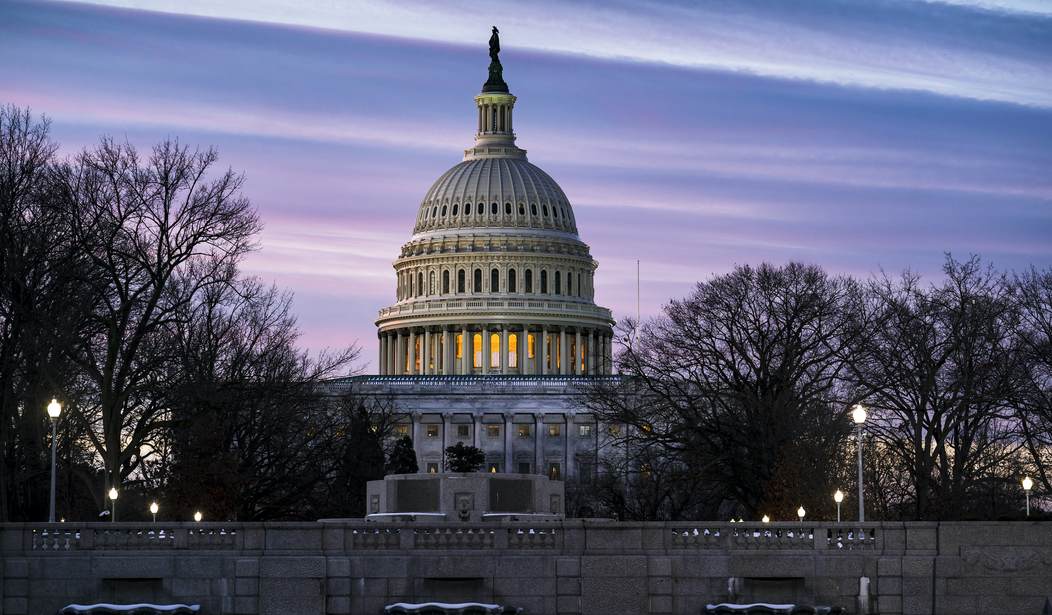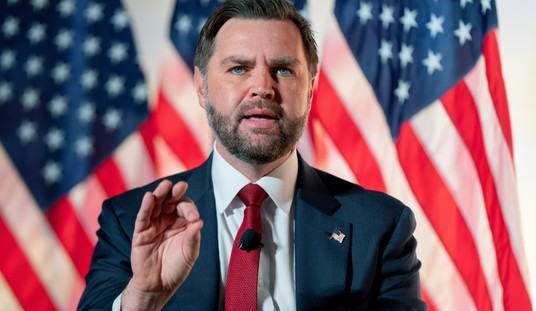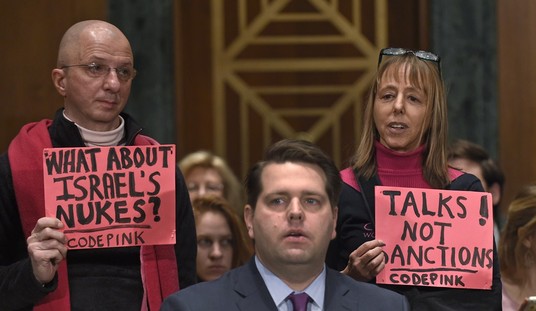Over the years, investigations and reports have revealed a disturbing culture of corruption, favoritism, and cover-ups among the leaders of the U.S. Capitol Police (USCP). With incidents dating back to the late 1990s, high-ranking officials, including assistant chiefs and deputies, have been implicated in various forms of misconduct including fraud, forgery, obstruction of justice, and others.
A new Blaze Media investigation highlights some of the shadier aspects of the USCP, detailing a culture in which misconduct not only goes unpunished, but is often rewarded. “Corruption is endemic at the highest levels of the United States Capitol Police,” the report reads.
High-ranking USCP officials, including a present-day deputy chief and an assistant chief, were implicated and faced discipline and possible termination in a fraudulent overtime pay scheme that defrauded the government of tens of thousands of dollars, according to documents obtained by Blaze Media and a former Capitol Police sergeant. A lieutenant involved in the scam left the Capitol Police and now works for the U.S. Senate sergeant at arms.
The scheme involved current USCP Assistant Chief Sean Gallagher and Deputy Chief John Erickson. Rhoda Henderson, a retired USCP sergeant, blew the whistle on the scheme, bringing the questionable overtime billing to department officials in 2012. “They look out for each other, the higher rank you go,” she told Blaze Media. “To me, it’s always been, ‘I’ll cover up your sins if you cover up mine.’”
The National Journal story relied in part on the account of Rhoda Henderson, a retired USCP sergeant and whistleblower. In an exclusive interview with Blaze Media, Henderson confirmed that the officers involved were current USCP Assistant Chief Sean Gallagher, current Deputy Chief John Erickson, and Wendy Colmore, who is now director of central operations for the U.S. Senate sergeant at arms.
Gallagher was a captain with the dignitary protection detail and the alleged “ringleader” at the time of the payroll scheme, while Erickson and Colmore were both lieutenants under Gallagher’s command.
Henderson told Blaze Media that the scheme lasted “for at least a year,” and while she wasn’t involved in the crime’s audit, the three officers stole well in excess of $10,000 from the USCP. She also explained that USCP authorities first doubted her story until she was able to produce the paper trail of the scheme.
Henderson told National Journal about her experience rooting out the corrupt activity.
The newest chapter in the department's expanding book of troubles actually began nearly two years ago. Details of the matter were first provided to National Journal two weeks ago by Rhoda Henderson, a sergeant who retired last year from the department after 20 years and who says the money paid out for phony overtime claims exceeds $10,000, though she could not specify.
In multiple interviews, Henderson recounted how she had initially brought the questionable overtime billing by the three supervisors to department officials starting in the summer of 2012. She said that included talking to the Internal Affairs Division (now called the Office of Professional Responsibility) and the Capitol Police Office of Inspector General.
Henderson said she also provided those officials with documentation to back up her claims. "There was no doubt. It was an easy trail to follow," said Henderson, who previously was employed as a sheriff's deputy in Louisiana.
It was during her work helping to manage the Dignitary Protection Division's overtime pay records that she discovered the scheme. The division's role is to provide special security for leaders of both parties in the House and Senate and also lawmakers who have received violent threats.
Henderson said she began monitoring what appeared to her to be inappropriate "time shifting" by the supervisors of their overtime hours "behind my back" on their biweekly pay records in January 2010. She said the officers were moving some of their claimed overtime hours from pay periods when they exceeded departmental biweekly caps to other pay periods when the hours were not actually worked.
"Another employee mentioned to me in an offhand way that the lieutenant had asked her to 'move time,' " Henderson said.
Under departmental rules, annual pay for officers cannot exceed the House speaker's $223,500 base salary, and any two-week amount cannot exceed the speaker's biweekly base salary of about $8,596.
The overtime shifting was a way to get around those biweekly caps. But, Henderson said, "a lot of senior officers in the same situation were not doing this." When she discovered the scheme, Henderson said she began to require that special clerical notations be made on the electronic time and attendance records to document what the three supervisors were doing in shifting excess overtime to other pay periods.
When she brought the discrepancies to the higher-ups, Internal Affairs turned the tables, questioning her about why she believed there was an issue. They even suggested that a review could lead to her being blamed for the problem.
After that, she brought the issue to the Inspector General, but did not hear back and the scheme continued, resulting in thousands of dollars being stolen from the USCP. However, it appears there was somewhat of an investigation into the matter.
A USCP memorandum dated July 11, 2013, reveals that when questioned by departmental investigators, then-Captain Gallagher claimed that the scheme was Colmore’s idea. However, Gallagher was the supervisor for both Colmore and Erickson, and Gallagher should have been fully aware of the illegality and violation of department rules represented by this scheme. It would have been his responsibility — even if Colmore’s “idea” — to stop the conspiracy in its tracks. Instead, he fully engaged in the scheme himself, the documents show and a source close to the investigation confirmed.
From the memorandum:
All three claim that this was not a conspiracy. What was it then? Ask them what they call it when three people all agree to backfill overtime and not inform their chain of command.
Gallagher is alleged to have forged the name of Daniel B. Malloy, his supervisor, on his overtime pay submissions. He was even careful enough to use ink with different colors from his own signature when faking Malloy's.
Yet, even with the information uncovered during the investigation, Gallagher was not fired. In fact, he was promoted to inspector in 2018.
Yet Gallagher was not fired. Instead, he was supposed to be demoted to lieutenant and ordered to reimburse the department for “all the pay he received as a result of his misconduct.”
How did Gallagher manage to keep his job?
A Capitol Police source close to the investigation who asked not to be named for fear of retaliation said Capitol Police Chief Kim Dine intervened in Gallagher’s case. Dine, who retired in 2015 after a contentious three-year tenure, reassigned the disposition of Gallagher’s discipline to the very supervisor whose name he had forged: Daniel Malloy.
This has also been the case with the other officials mentioned in the report. Instead of facing consequences, many of them were rewarded.
Other reports detail the USCP’s lack of transparency in its operations, pointing to its exemption from the Freedom of Information Act (FOIA). This allows the agency to operate with a level of secrecy not afforded to other law enforcement agencies. Lawmakers on both sides of the aisle pushed for reform within law enforcement after the murder of George Floyd, but have not given the same attention to those tasked with safeguarding the area where government officials make decisions affecting the lives of Americans.
Despite the public outcry for more transparency, none of the lawmakers who serve on committees whose jurisdiction includes the Capitol Police said the force charged with protecting and securing Congress should be subject to the 1966 Freedom of Information Act that requires federal agencies to disclose a large amount of government information to the public.
Congress is not subject to the law, and the Capitol Police, as a component of the legislative branch, is also exempt from any FOIA request.
The USCP has been granted an alarming level of latitude without a requirement to be transparent when it comes to corruption. This history of misconduct, which spans decades, should never be allowed in any government agency.











Join the conversation as a VIP Member